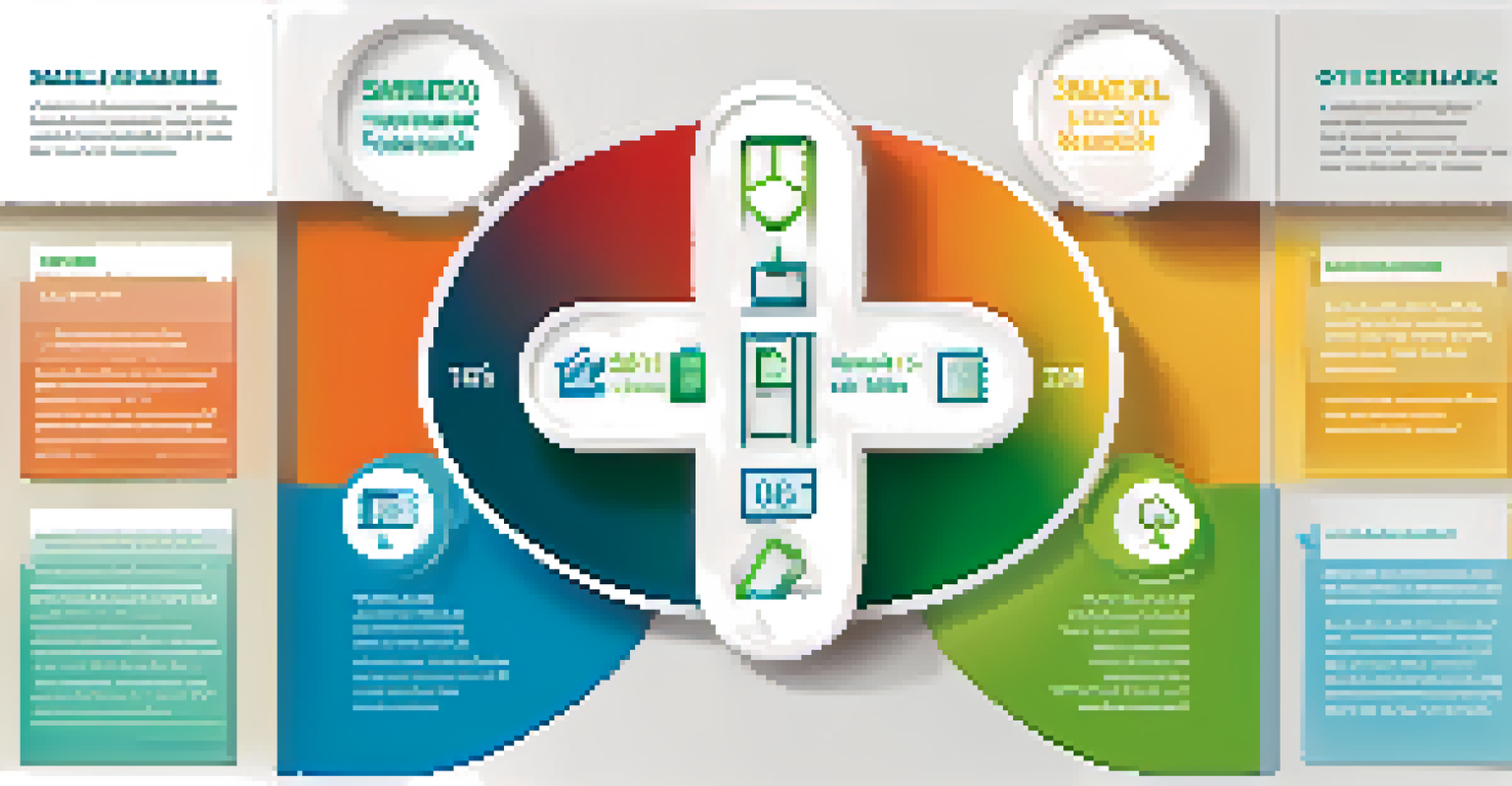Setting Realistic Goals for Technical Skills Improvement

Understanding the Importance of Goal Setting
Setting goals is crucial in any journey, especially when it comes to improving your technical skills. Goals give you direction and help you measure your progress. Without them, you may find yourself wandering aimlessly, unsure of what to focus on next.
Setting goals is the first step in turning the invisible into the visible.
Think of goal setting like using a map for a road trip. It not only shows you the destination but also the best route to take. By clearly defining your objectives, you can avoid unnecessary detours and stay motivated.
Moreover, having specific goals allows you to celebrate small wins along the way. Each milestone you achieve boosts your confidence and keeps you engaged in the learning process.
Identifying Your Current Skill Level
Before setting goals, it's essential to assess your current skill level. This self-assessment helps you understand where you stand and what areas need improvement. Consider taking online quizzes or reflecting on your previous experiences to gauge your abilities.

For instance, if you're aiming to learn a programming language, evaluating your familiarity with coding concepts can provide clarity. This way, you can identify whether you're starting from scratch or if you have a foundation to build upon.
Set Clear Goals for Direction
Establishing specific goals provides a roadmap for your learning journey, helping you stay focused and motivated.
Knowing your starting point also helps you set more realistic goals. Instead of setting an overwhelming target, you can create a roadmap that gradually leads you to mastery.
Setting SMART Goals for Technical Skills
One effective strategy for goal setting is the SMART framework, which stands for Specific, Measurable, Achievable, Relevant, and Time-bound. This approach ensures that your goals are clear and attainable, providing a structured way to track progress.
A goal without a plan is just a wish.
For example, instead of saying, 'I want to learn Python,' a SMART goal would be, 'I will complete an online Python course in three months, dedicating five hours a week.' This specificity helps you stay focused and accountable.
Moreover, aligning your goals with your career aspirations makes them more relevant. When your goals resonate with your professional ambitions, you’re likely to stay motivated throughout the process.
Breaking Down Goals into Manageable Steps
Once you've established your main goals, it’s time to break them down into smaller, manageable steps. This makes the process less daunting and allows you to tackle each task without feeling overwhelmed.
For instance, if your goal is to build a website, you could break it down into steps such as learning HTML, CSS, and JavaScript, and then moving on to design principles. Each completed step brings you closer to your ultimate goal.
Break Goals into Manageable Steps
Dividing larger goals into smaller tasks makes the process less overwhelming and allows for steady progress.
Additionally, celebrating these small victories keeps your momentum going. Each time you check off a task, you’ll feel a sense of accomplishment that fuels your motivation.
Establishing a Routine for Consistency
Consistency is key when it comes to developing technical skills. Establishing a routine helps you create a habit of learning, making it easier to incorporate new skills into your daily life. Whether it's dedicating time each morning or scheduling sessions during the weekend, find what works best for you.
Consider treating your learning like an appointment you can't miss. By setting aside specific times for practice, you prioritize your growth and make steady progress over time.
Don't forget to stay flexible; life can throw unexpected challenges your way. Adapting your routine as needed ensures you maintain your commitment to learning, even when things get busy.
Utilizing Resources for Skill Development
In today's digital age, there’s no shortage of resources available for skill development. From online courses and tutorials to forums and communities, take advantage of these tools to enhance your learning experience.
For example, platforms like Coursera and Udemy offer a plethora of courses on technical subjects, making it easier to find quality education. Joining communities on platforms like Reddit or Stack Overflow can also provide support and insights from others on a similar journey.
Evaluate and Adjust Regularly
Regularly assessing your progress ensures that your goals remain realistic and aligned with your evolving skills.
Don't hesitate to seek out mentorship or peer support. Learning from others not only accelerates your growth but also makes the process more enjoyable.
Evaluating Your Progress and Adjusting Goals
Regularly evaluating your progress is essential to ensure you're on track to achieving your goals. Set aside time to reflect on what you've learned, what challenges you've faced, and how you can improve moving forward.
For instance, you might find that a specific learning method isn’t working for you, or perhaps you've mastered a skill faster than anticipated. Use this feedback to adjust your goals accordingly, ensuring they remain realistic and aligned with your current abilities.

Remember, goal setting is an ongoing process. As you grow and evolve, so too should your objectives, allowing you to continuously challenge yourself and expand your technical prowess.